Recently, Virtuals Protocol released a 1.5-minute video featuring an image representing Luna charging towards Ethereum, which also included a sculpture of Vitalik and another well-known figure from Virtual, Aixbt, watching. Subsequently, Ethereum's official account retweeted the video, and both parties announced the formal start of their collaboration. The Ethereum project I.R.I.S, which launched for the first time during Genesis Launches, is powered by AuditAgent, an AI-driven smart contract analysis tool developed by Nethermind, a company founded by Tomasz K. Stańczak, the current co-executive director of the Ethereum Foundation.
What is I.R.I.S? Who is Tomasz K. Stańczak? What impact might this have on Ethereum?
What is I.R.I.S?
I.R.I.S. (full name: Integrity & Risk Intelligence Scanner) is supported by AuditAgent, an experimental automated smart contract security platform launched by Nethermind, natively deployed on the X platform and designed specifically for Web3 builders. It can actively scan developers' conversations and code on social media, providing real-time actionable security insights and identifying potential risks and emerging needs, thereby helping developers conduct audit pre-screening, learn security knowledge, and identify business opportunities in their most frequently used environments.

Unlike traditional static tools, I.R.I.S. is centered around an AI-driven agent framework, combining the expertise of Nethermind Security and real audit data to provide three core functions: AI-enhanced smart contract scanning, actionable vulnerability reports and remediation suggestions, and real-time education on security best practices. It does not replace manual audits but serves as an intelligent assistant in daily security processes, capable of completing basic scans in minutes, advanced analyses in 30-40 minutes, and in-depth research in 1.5 to 3 hours, significantly enhancing development efficiency and product security.
As a smart and continuously evolving "security assistant," I.R.I.S.'s advantages stem from its understanding of real attack cases and audit patterns, its contextual awareness of code and social contexts, and its ability to access Nethermind's security research data streams, allowing it to keep up with the latest threats and provide high signal-to-noise ratio vulnerability identification. Its unique moat lies in the integration of proprietary vulnerability detection frameworks, multi-model AI orchestration systems, and native integration with social platforms, achieving a clear lead in speed, accuracy, and practicality.
50% of the team's share will be airdropped to the community, released linearly over two years to the Ethereum community, while the remaining 37.5% will be publicly sold during the Genesis Launch, and 12.5% will be allocated to liquidity for Virtual and Ethereum trading pairs.
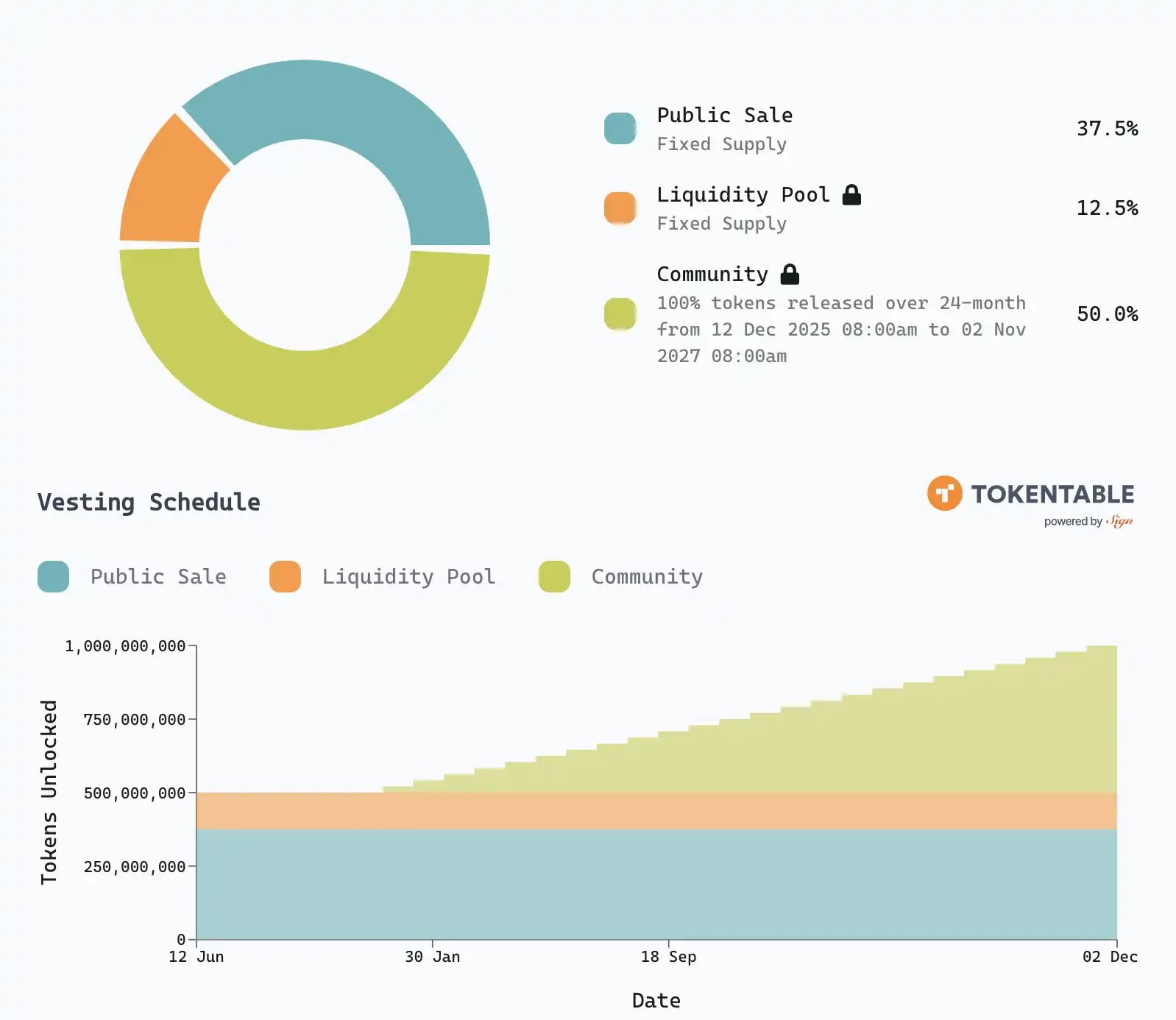
It is worth noting that members of the Nethermind or AuditAgent teams have not publicly stated that this project is related to the team itself, but Vader, the founder of Virtuals Protocol's core project VaderAI, stated, "Close sources within the Nethermind executive team have told me that they have been working on this agent for some time," while Wee Kee, co-founder of Virtuals Protocol, bluntly stated that IRIS is a joint issuance by Virtuals and Nethermind.
Vader believes that due to Tomasz K. Stańczak's "@tkstanczak" position at the Ethereum Foundation, it is uncertain whether he would risk his reputation on this AI Agent project. However, it can be confirmed that IRIS, as the first Ethereum project launched by Virtuals, holds symbolic significance for both parties.
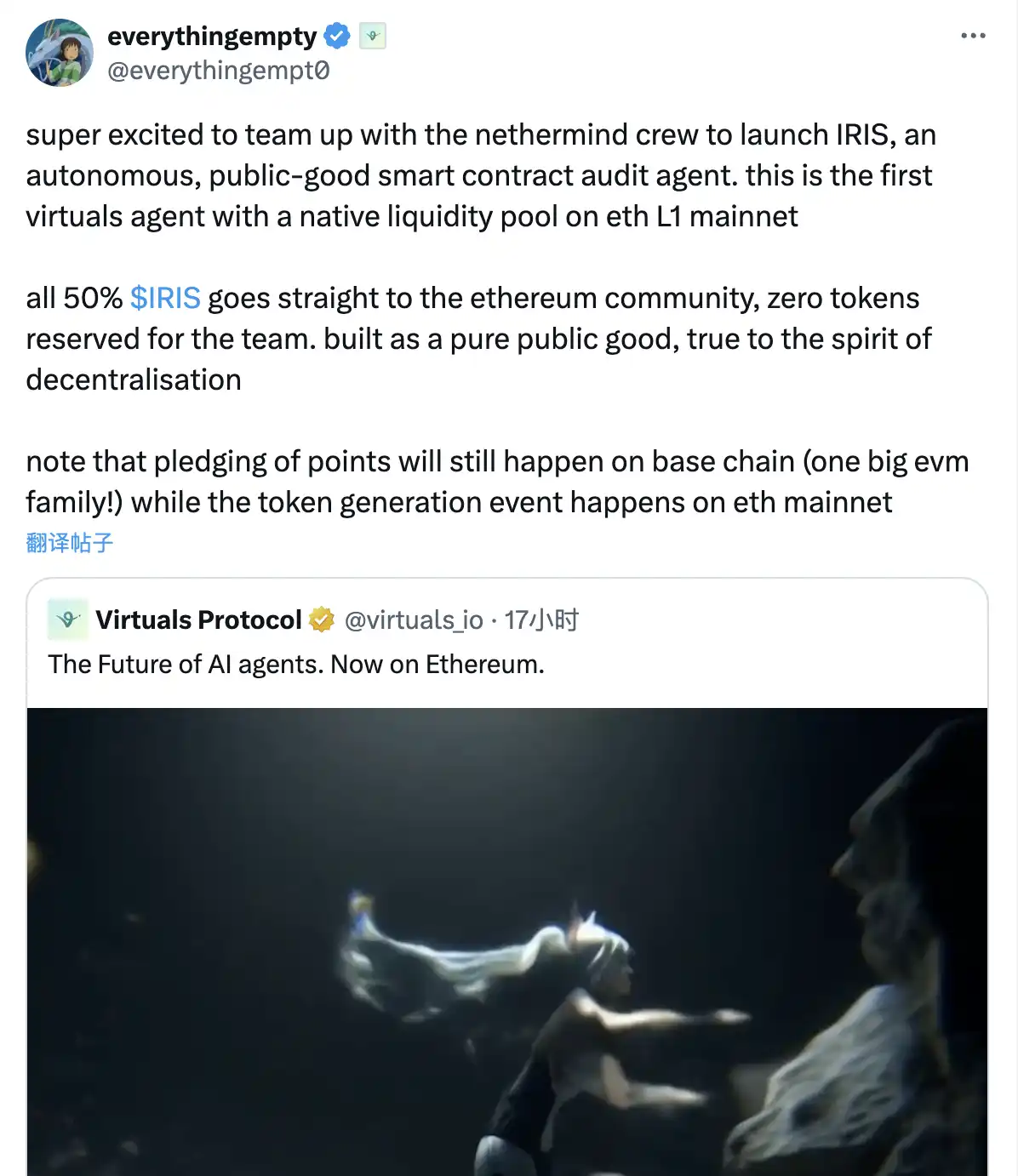
From Dropout to EF Executive Director
Tomasz studied at Adam Mickiewicz University (AMU) from 2004 to 2009, earning a master's degree in information technology. At the same time, he also studied business management at Poznań University of Economics from 2005 to 2010, which is not uncommon in Poland's education system to attend two universities simultaneously. However, in his final year at Poznań University of Economics, he hardly attended classes and, of course, did not participate in his thesis.
In fact, in the last year before graduating from Poznań University of Economics, Tomasz joined Itelligence (now known as NTT), a global IT services and consulting company founded in 1989 and headquartered in Bielefeld, Germany. At this time, Tomasz's job was to lead a small team to expand the application of the underwriting platform MRET for MunichRe (a German insurance company), which was one of MunichRe's most important IT projects, and possibly the busy work led to him having little time to complete his studies in his final year at Poznań University.
After a year and a half at Itelligence, Tomasz chose to join CME Group (Chicago Mercantile Exchange) to be responsible for the technical development of the CME Direct trading platform. Just six months later, he switched to Citibank, where he led one team project after another, rising from technical director to VP over the next five years.
A year after leaving Citibank, in 2017, he founded Nethermind, a team providing technology, research, and consulting services for blockchain and DeFi businesses, which seemed very reasonable given his previous experience in traditional finance and consulting.
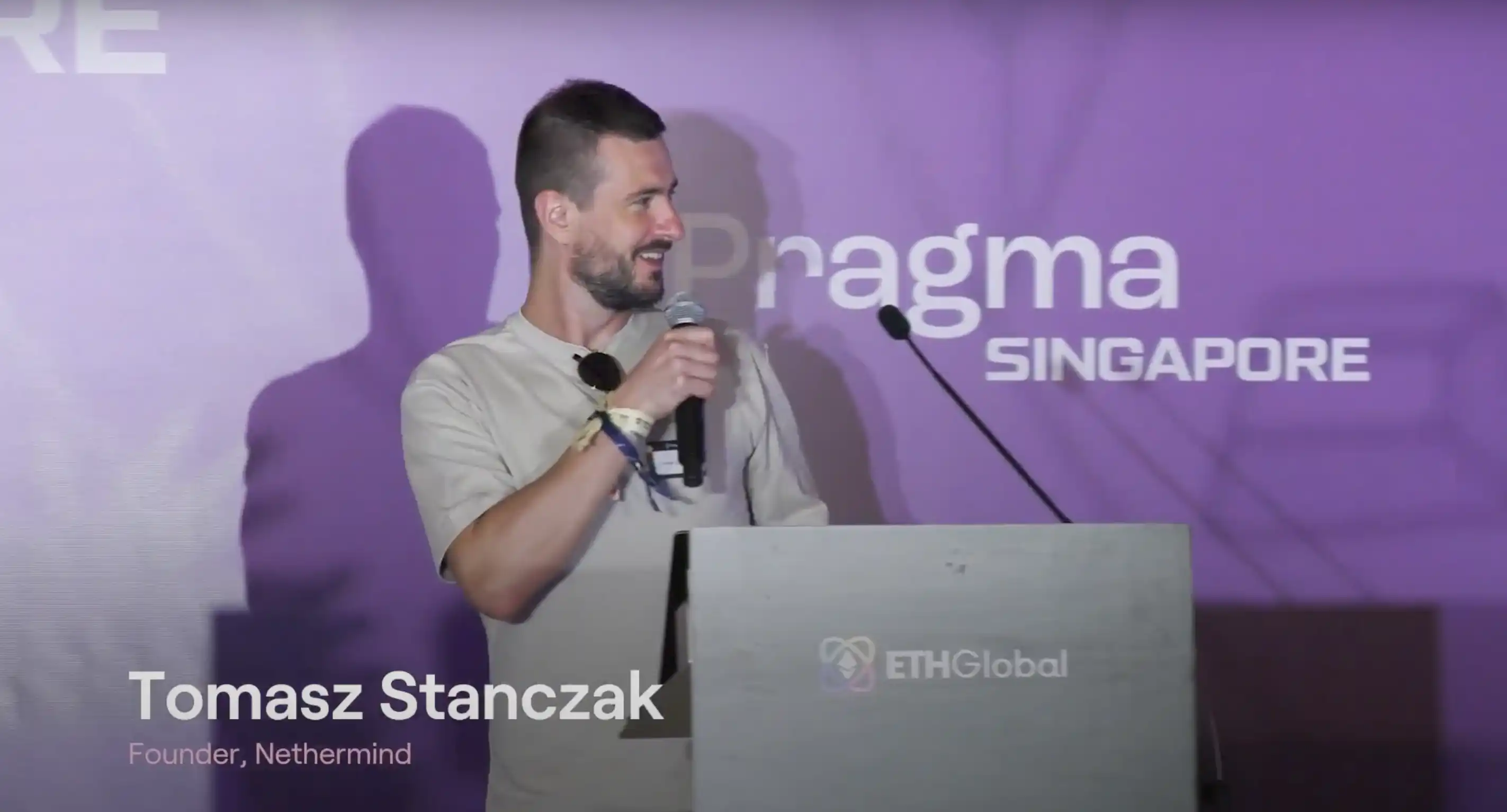
At Nethermind, Tomasz established an efficient talent recruitment and training mechanism, creating a high-functioning team. They not only developed a high-performance Ethereum execution client but also supported tools like Sedge (one-click deployment tool) and Warp (Solidity to Cairo translator), as well as Layer 2 solutions (such as Juno for Starknet). The Nethermind team was also deeply involved in key upgrades such as The Merge, Shapella, Dencun, and Pectra.
Since 2017, Tomasz has actively participated in the Ethereum community, being an early team member of Flashbots involved in the research of MEV and PBS, later joining the board of Ethereum Layer 2 StarkNet, serving as CEO of the institutional KYC provider Twinstake. Meanwhile, the Nethermind team gradually expanded to over 330 members, deeply engaging with the community and frequently expressing his views on the development of the Ethereum community at public events ("EthCC, Devcon, X, technical articles"), giving him considerable influence within the community.
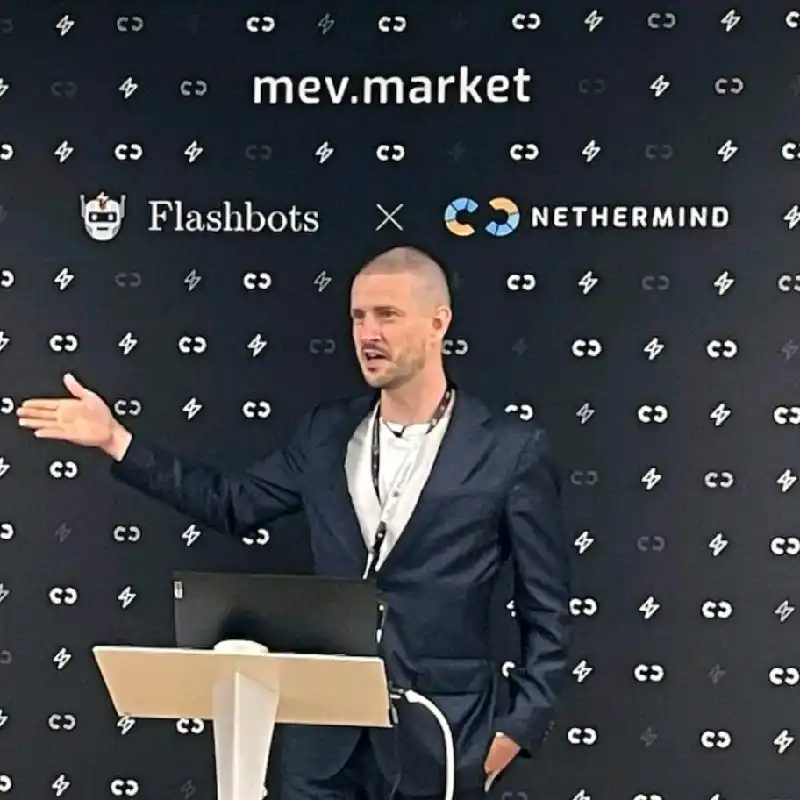
Since the Trump administration took office, the blockchain model has changed significantly from before, with Vitalik advocating for Ethereum's "de-governance," promoting "cypherpunk" ideals, and supporting collaboration with traditional finance and enterprises to promote "compliance" to attract capital and drive mainstream adoption. The differences between the teams of Joseph Lubin's Pionex and Vitalik's camp have gradually emerged. At this time, Tomasz, who identifies with Ethereum's decentralized and open-source values, supports the concepts of Ethereum as "globally neutral" and "trustless," while also having a rich background in traditional finance and connections, and a strong understanding of technology, seems to be the perfect candidate for mediation.
On March 17, 2025, Tomasz K. Stańczak officially became the co-executive director of the Ethereum Foundation, leading alongside Hsiao-Wei Wang.
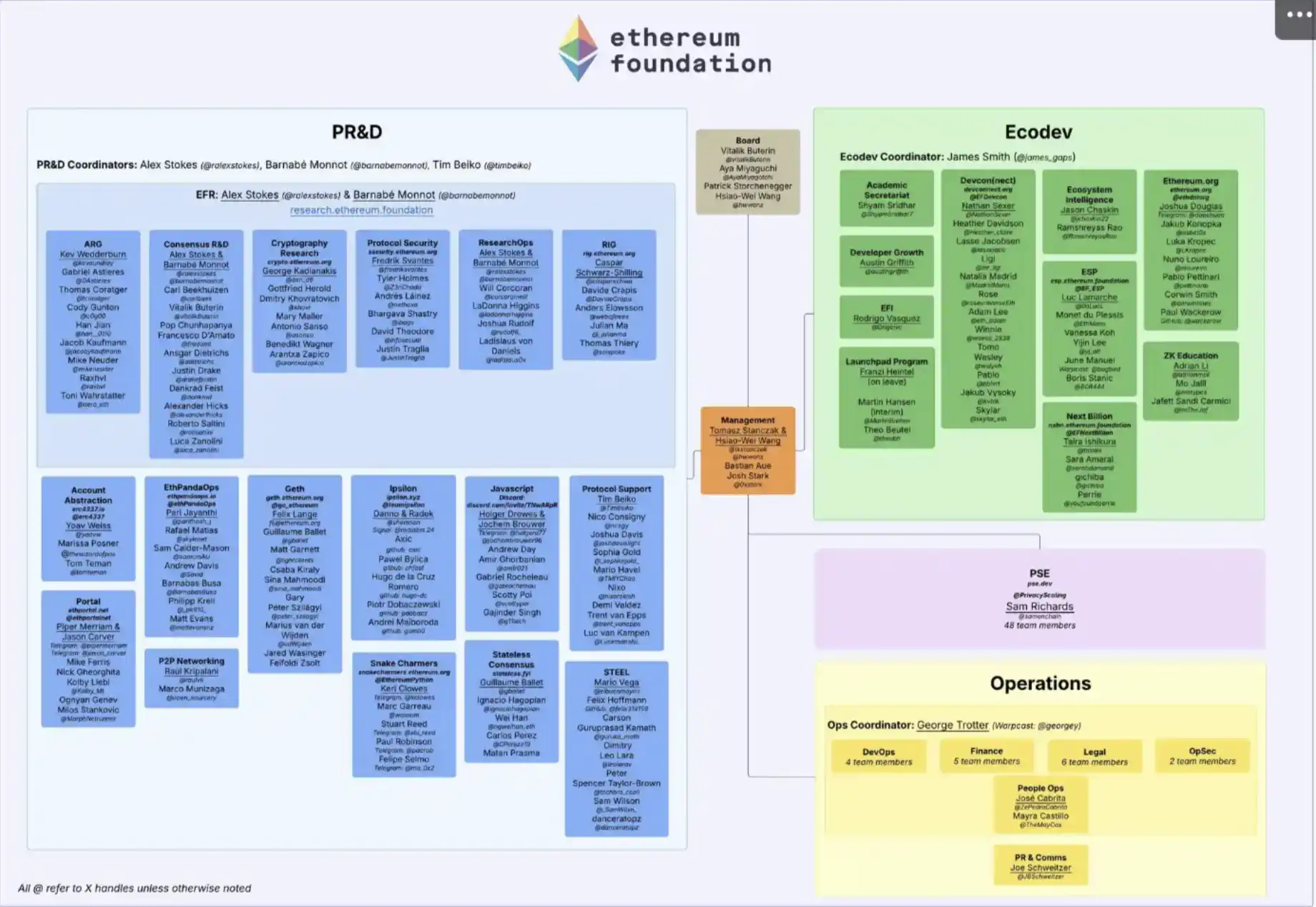
What does the collaboration with Virtuals mean for Ethereum?
On April 14, 2025, Tomasz, as the co-executive director of the Ethereum Foundation, shared a simplified roadmap for Ethereum on social media X, clearly incorporating AI integration into long-term goals. Previously, he had mentioned multiple times in speeches and on X that AI could serve as a long-term entry point to attract thinkers and creative talents.
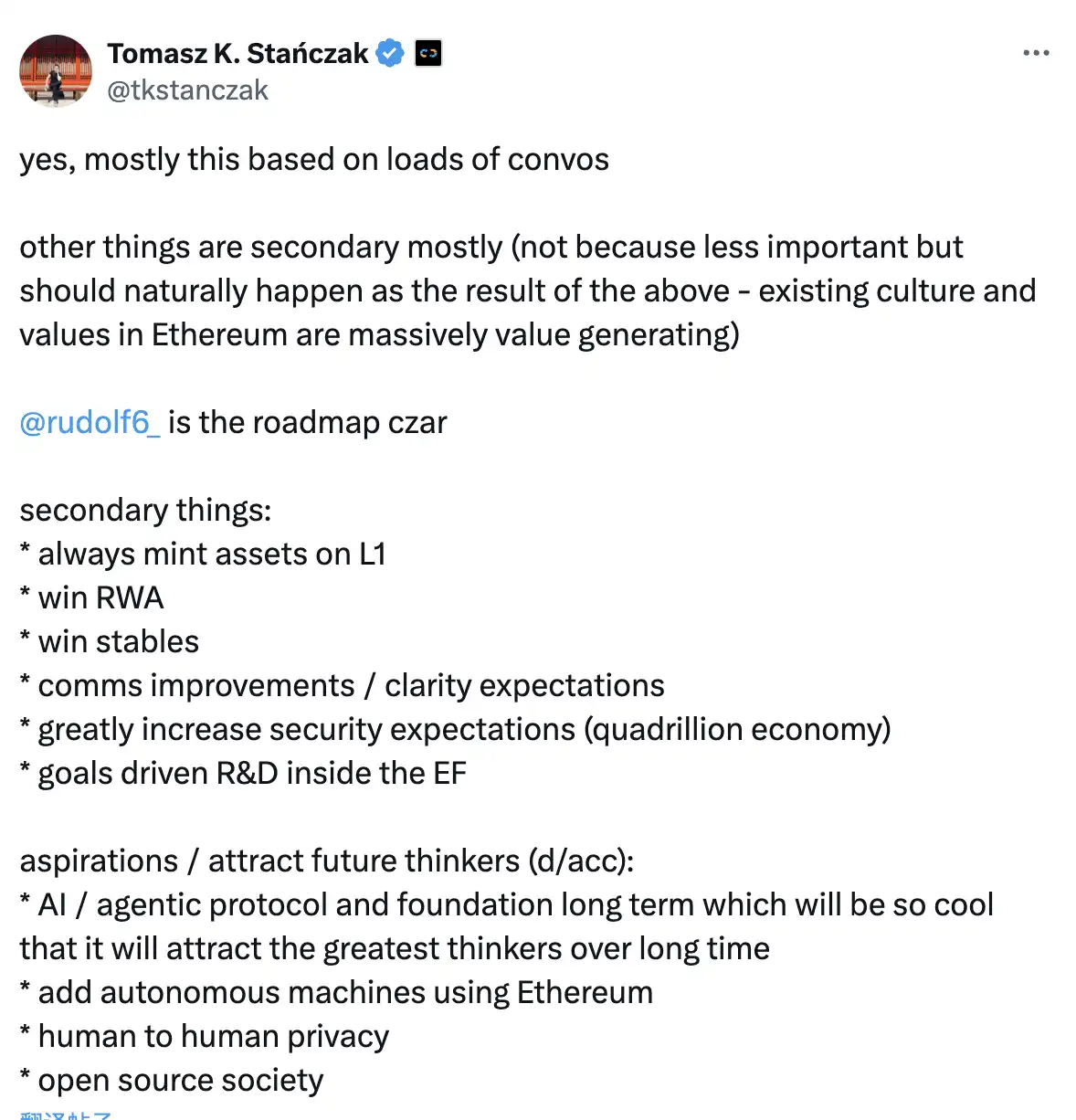
On March 12, 2025, Tomasz shared his vision for the future of Ethereum + AI at the Stanford AI Blockchain Summit. At that time, he had just been appointed as the co-executive president of Ethereum but had not yet taken office.
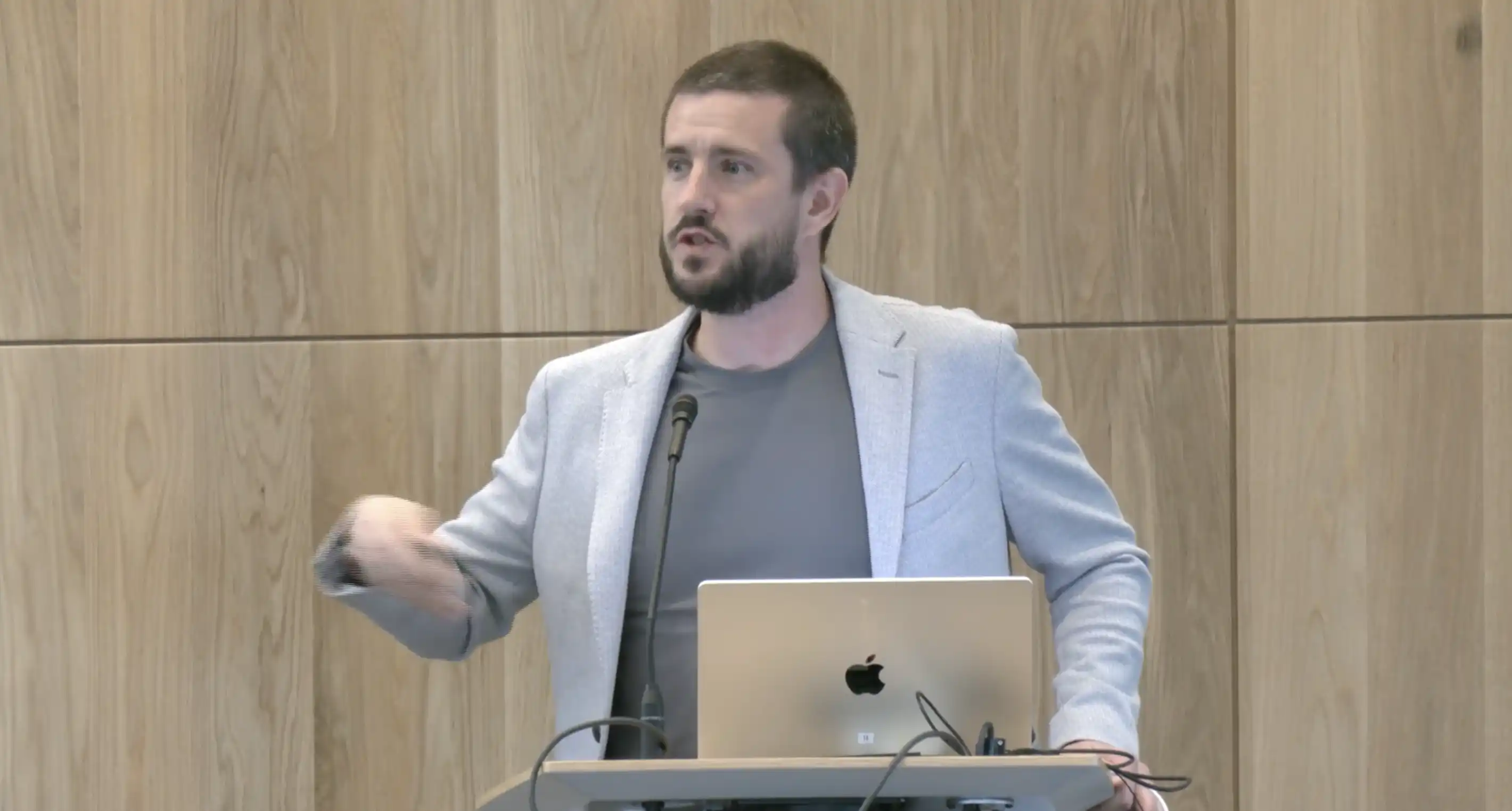
Tomasz discusses AI + Blockchain at the Stanford Blockchain AI Summit.
In his speech, he discussed the utility of multi-agent AI, the evolution of blockchain governance, how to leverage AI for smarter collective decision-making, Ethereum-related applications, and how collective intelligence from AI can enhance the collective decision-making capabilities of blockchain networks through data analysis and predictive models, reduce human intervention, and improve the scalability of decentralized systems.
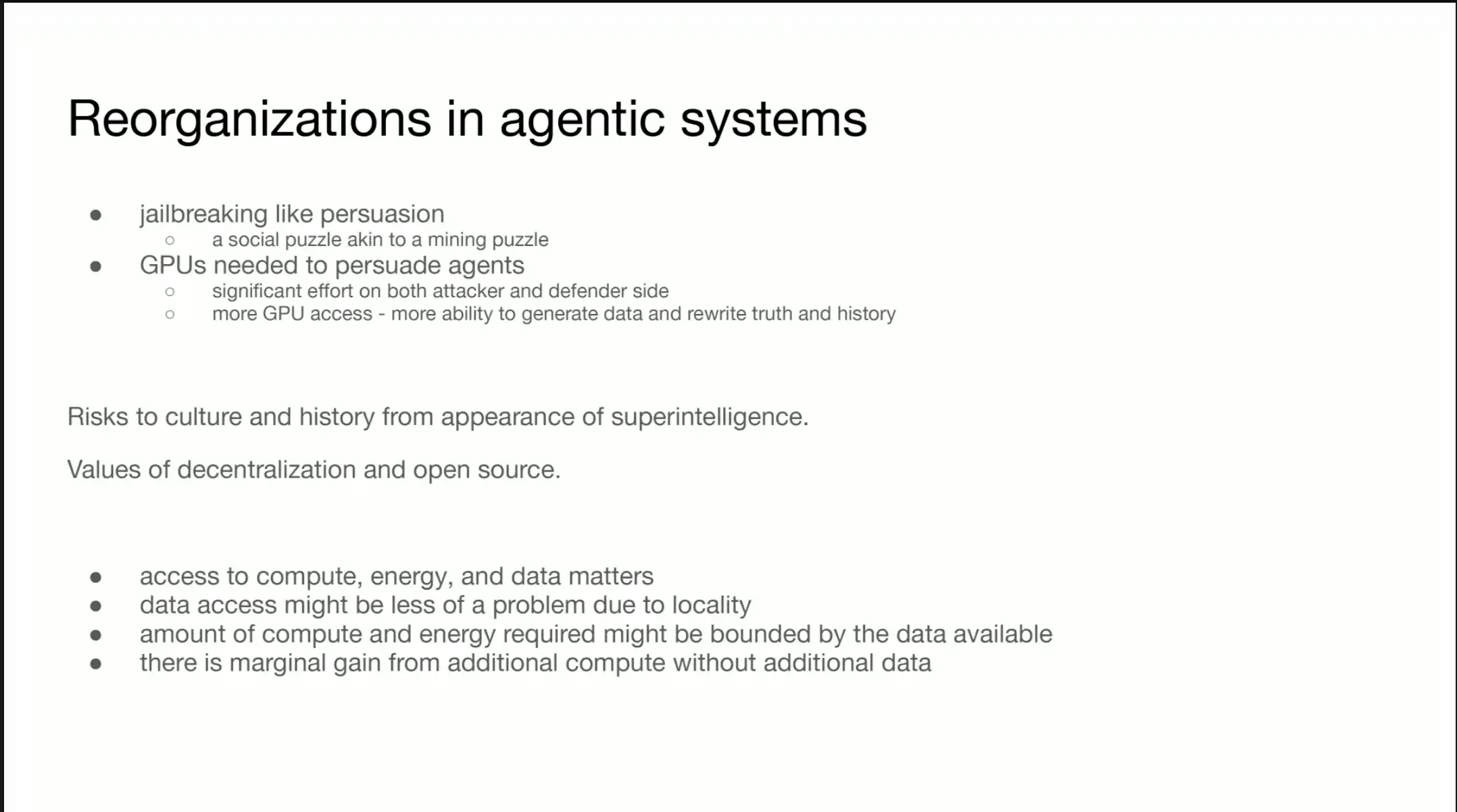
Unlike Solana and Base, there are very few projects building AI products on Ethereum. Perhaps for this reason, Tomasz K. Stańczak co-founded Lantern Capital on May 7, 2025, with Gökhan and the Nethermind team, an early-stage venture capital firm. Lantern Capital focuses on supporting founders in developing the next generation of applications and experiences that enable AI systems to effectively interact with blockchain technology.
Lantern Capital emphasizes exploring how AI can achieve reliable collaboration on the blockchain, such as supporting the operation of AI agents through the Ethereum network. It also aims to enhance Agent Experience (AX) and optimize the user experience of AI agents in blockchain environments while ensuring that the underlying blockchain infrastructure can reliably support dynamic AI use cases. Tomasz views Ethereum as the core of this vision, emphasizing that the combination of AI and blockchain can create new decentralized application scenarios, such as the collaborative work of autonomous machines and smart contracts.
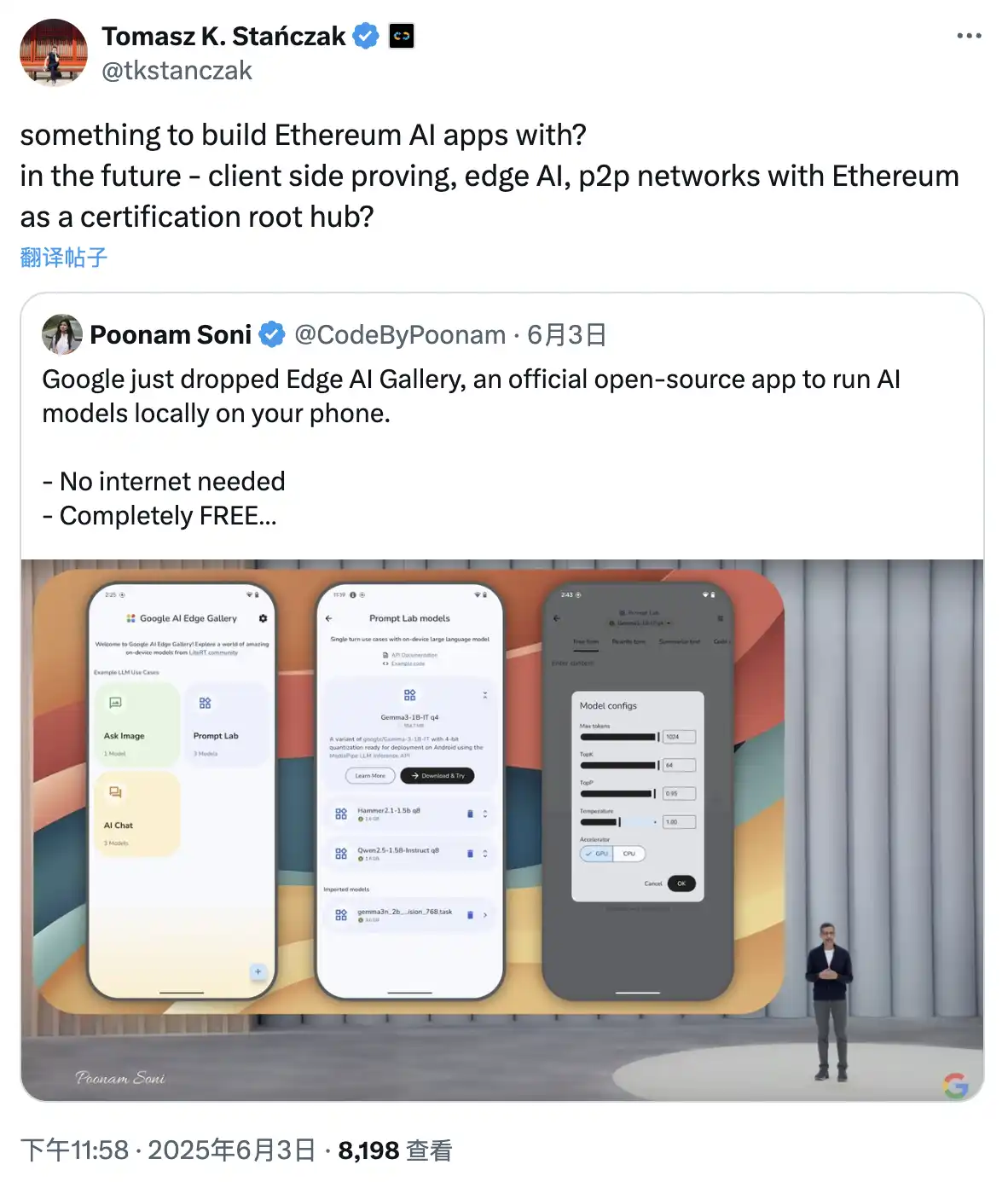
Nevertheless, building a complete AI ecosystem from scratch on Ethereum is a lengthy and costly process. By integrating with the Virtuals Protocol, Ethereum can directly introduce a mature token economy system that encompasses core functions such as the creation of AI agents, incentive mechanisms, transactions, and co-ownership, providing users and developers with new revenue models and interaction opportunities.
The tokenization of Agents not only enables profit sharing, incentivizing more users to participate and co-build the emerging decentralized application ecosystem, but also feeds back into the entire Ethereum network through actual economic returns. With the help of Virtuals, AI Agents become more composable and profitable on Ethereum, significantly expanding the innovative boundaries of DeFi, blockchain games, and the next generation of DApps, further driving dual enhancements in user engagement and developer activity.
Will Ethereum's high liquidity and institutional risk resistance, combined with Virtuals' current strong ecosystem, allow AI applications to become the new narrative for Ethereum's next phase?
免责声明:本文章仅代表作者个人观点,不代表本平台的立场和观点。本文章仅供信息分享,不构成对任何人的任何投资建议。用户与作者之间的任何争议,与本平台无关。如网页中刊载的文章或图片涉及侵权,请提供相关的权利证明和身份证明发送邮件到support@aicoin.com,本平台相关工作人员将会进行核查。




